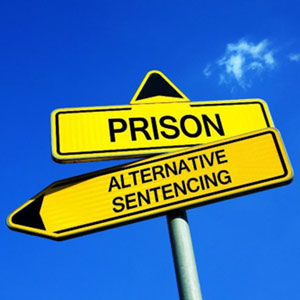Alternative Punishments
There are a range of potential options for resolving criminal cases beyond just jail, or prison sentences in criminal cases. One of the most common alternative punishments in Florida criminal cases is probation, which allows you to remain in the community while demonstrating your commitment to rehabilitation. Probation often involves requirements such as counseling, rehabilitative services, or community service hours.
Another alternative, known as community control, commonly referred to as house arrest, is essentially a stricter form of probation. Under community control, you are permitted to stay at your home but must adhere to a tightly regulated schedule. Leaving home is restricted to essential activities like work, school, religious services, or grocery shopping. What’s more, your schedule is subject to approval by a probation officer. Deviating from the approved schedule may lead to a violation of community control and a return to jail.
Fines are another option for resolving cases, allowing you to pay money rather than serve time in jail or prison. Additionally, there are specialized programs called pretrial diversion and pretrial intervention programs, which are typically available to first-time offenders or individuals with a limited criminal history. Successful completion of these programs can lead to the dismissal of charges.
Furthermore, there are specialty courts, such as veterans court, mental health court, and drug court, designed to address the unique needs of specific populations. Mental health courts are tailored to individuals with mental health issues, drug courts focus on those with drug addiction issues, and veterans courts serve honorably discharged military veterans. These specialized courts aim to provide rehabilitation and support tailored to the specific challenges these individuals face.
For some nonviolent offenses, work release programs may be available. In these programs, individuals may serve their sentences in work release centers, which have characteristics similar to jails, but allow participants to work during the day and return to the center in the evenings. Some counties also offer work ranches or work farms as alternatives to traditional incarceration, allowing individuals to work off their sentences in a different environment.
Think Twice Before Pleading Guilty
If you face criminal charges, you must understand what is on the line if you plead guilty without considering your rights or the available evidence against you. Pleading guilty prematurely means giving up several important rights and opportunities to achieve a better outcome.
Pleading guilty without thoroughly reviewing the evidence can mean relinquishing the opportunity to explore affirmative defenses. Affirmative defenses, like self-defense, allow you to justify your actions even if you committed the act they’re accused of. For instance, if someone is charged with battery but can argue that they acted in self-defense due to a credible threat, they may have a valid defense and be found not guilty. Pleading guilty without legal consultation and a thorough review of the evidence may prevent individuals from discovering and presenting such defenses.
Additionally, if law enforcement committed any misconduct, such as conducting an illegal search or seizure during the investigation, an effective attorney may be able to convince your judge to suppress the evidence in your case. This could lead to the charges being dropped entirely. Pleading guilty without understanding these potential violations of your constitutional rights can result in a missed opportunity to have the evidence thrown out.
Pleading guilty without exploring your options also means losing the ability to negotiate the terms of a plea deal. It’s usually more advantageous to plead not guilty at the arraignment, allowing an attorney to review the evidence, explore defenses, and negotiate with prosecutors to secure a favorable plea agreement. Pleading guilty without negotiations puts the sentence entirely in the hands of the judge, who could impose a sentence up to the maximum allowed by law.
For more information on Alternative Punishments In FL Criminal Cases, a free initial consultation is your next best step. Get the information and legal answers you are seeking by calling (407) 890-8472 today.

